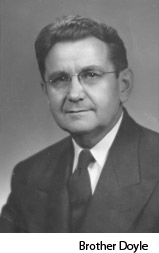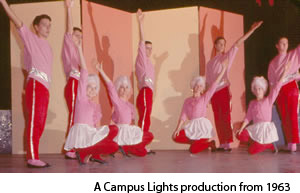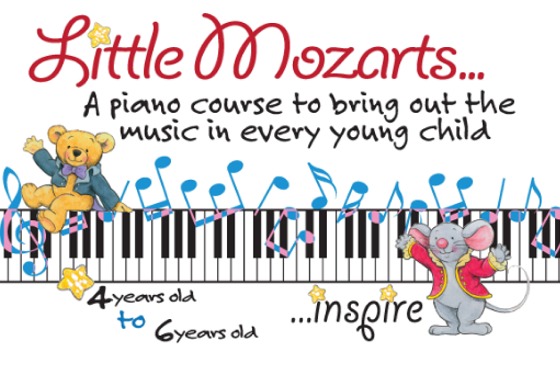E.L. Lancaster & Gamma Delta – Fraternal History, Fraternal Progress
Gamma Delta remains strong and vigorous and continues to reflect great credit to itself and its members. Spirit, morale and dedication to our common ideals are at an all-time high as we begin the final phase of this school year. The academic and musical achievements of the members have set new standards for all.
This year will bring the close of an era in the history of your department and the beginning of a new one. By next fall, it is anticipated that we will be a functioning part of the newly expected School of Fine Arts. The search for a Dean of this School is in progress and is expected to be announced in the near future.
Work on the new building is moving rapidly with the target of August, 1970, as the completion date.
The Price Doyle Memorial Scholarship fund is in need of more contributions and we will accept them gratefully at any time.
You may be assured that Gamma Delta is in good hands and that we continue to solicit your interest and support, and all of us here send warmest greetings and fraternal regards.
Ricahrd W. Farrell, Alpha Lambda (Illinois Wesleyan); Gamma Delta Chapter Newsletter, 1969
 In 1969, the Fraternity was in a period of transition. Price "Pop" Doyle, Gamma Delta (Murray State) ’38, had recently passed away, and the Fraternity was in search of a permanent home. Doyle had served as National Secretary-Treasurer for nearly 20 years, and by virtue of this fact, the acting headquarters for the Fraternity had been his office at Murray State University. By July of 1970, they had found Lyrecrest as a permanent National Headquarters.
In 1969, the Fraternity was in a period of transition. Price "Pop" Doyle, Gamma Delta (Murray State) ’38, had recently passed away, and the Fraternity was in search of a permanent home. Doyle had served as National Secretary-Treasurer for nearly 20 years, and by virtue of this fact, the acting headquarters for the Fraternity had been his office at Murray State University. By July of 1970, they had found Lyrecrest as a permanent National Headquarters.
It was during this period of time that Dr. E.L. Lancaster S, Gamma Delta (Murray State) ’67, a member of the 2012 Signature Sinfonian class, attended Murray State. "During my initiation year," he says, "the headquarters was still in Murray with Pop Doyle. His office was right there, and he’d still walk around the halls regularly, though he was very elderly." The 1969-1970 school year saw Lancaster as Gamma Delta’s President, presiding over a strong and vibrant chapter.
Campus Lights 1969
Campus Lights 1969 followed in the footsteps of those past great shows and was truly a success. This year more cooperation within the Fraternity itself…made the show one of our better efforts.
The scenery can best be described as imaginative and functional while the band and chorus charts measured up to their usual level of excellence. Financially, the show netted $7,300, a larger sum than has been made by any previous Campus Lights. Of course, this money will go toward helping freshman music students in the form of scholarships and will also finance the workings of the Fraternity for the coming year.
All in all, Campus Lights 1969 was an outstanding production and future shows will be hard-put to surpass this year’s performances.
Gamma Delta Chapter Newsletter, 1969

"Campus Lights productions for scholarships helped the department greatly," says Lancaster. Campus Lights is a Gamma Delta tradition that extends back over 70 years, and continues to this day. In fact, as recently as 2010, the Resonance featured Campus Lights and its history (click here for more). "And we used to write our own scores instead of doing Broadway or stage plays," continues Lancaster. "As a student at Murray, Phi Mu Alpha and Sigma Alpha Iota were the glue that helped keep the department together."
It was from this point that Lancaster launched a brilliant career in music that is ongoing to this day. But while Phi Mu Alpha was an ideal group to provide an outlet to Lancaster’s musicality, his love of music is something that has existed since childhood. "My first memories of music stem from my visits to my Grandmother’s house," says Lancaster. "She had a large upright piano in her living room. When I was four and five years old, I couldn’t wait to visit her so that I could play the piano. I would sit on the bench and play with both hands and sometimes sing along. Although I wasn’t really playing by ear (just pounding in rhythm), I could hear specific pieces in my mind. I would "play" the piano for long periods of time – much to the dismay of those adults in the room who were trying to converse with each other above the ’music.’" From these beginnings, and his education at Murray State, Lancaster has become one of the nation’s foremost authorities on piano pedagogy.
 From 1979 until 1998, Dr. Lancaster was Professor of Music at the University of Oklahoma, Norman, where he taught courses in piano pedagogy and coordinated the group piano program. Dr. Lancaster established the masters and doctoral programs in piano pedagogy at the University of Oklahoma in 1980 and served as Major Professor for more than 50 doctoral dissertations in that field. "When I established the masters and doctoral programs at Oklahoma," he says, "we really built it from the ground up. And it’s still a very active program to this day," he added with some pride, "and one of the premiere programs in the country." Among numerous notable graduates, current Province Governor Dr. Philip Autry, Mu Gamma (Angelo State) ’99, was one of his doctoral students. While in Oklahoma, he also maintained a large independent piano studio with his wife, Dr. Gayle Kowalchyk, herself an accomplished pianist and pedagogue. "The primary goal for the students was to develop a love of music," they said of their studio.
From 1979 until 1998, Dr. Lancaster was Professor of Music at the University of Oklahoma, Norman, where he taught courses in piano pedagogy and coordinated the group piano program. Dr. Lancaster established the masters and doctoral programs in piano pedagogy at the University of Oklahoma in 1980 and served as Major Professor for more than 50 doctoral dissertations in that field. "When I established the masters and doctoral programs at Oklahoma," he says, "we really built it from the ground up. And it’s still a very active program to this day," he added with some pride, "and one of the premiere programs in the country." Among numerous notable graduates, current Province Governor Dr. Philip Autry, Mu Gamma (Angelo State) ’99, was one of his doctoral students. While in Oklahoma, he also maintained a large independent piano studio with his wife, Dr. Gayle Kowalchyk, herself an accomplished pianist and pedagogue. "The primary goal for the students was to develop a love of music," they said of their studio.
 Currently, Lancaster is Vice President and Keyboard Editor-in-Chief of Alfred Music Publishing. He draws upon his teaching experience, ranging from pre-school students through doctoral candidates, to direct the Alfred keyboard catalog. "Gayle actually worked for Alfred before I did," he says. "It was her that enticed me to come out and take over their keyboard area." Lancaster and his wife have collaborated on a number of works for various levels of piano instruction, including the popular "Music for Little Mozarts" series of instructional books. "Having the experience of teaching young children all the way to doctoral students really helped," he says. "The transition to publishing was very natural." His work has taken him as far as other continents – he traveled to Asia to help revise the Suzuki piano school books, an endeavor in which he collaborated with piano gurus from around the world. His "…Little Mozarts" series is also very popular overseas, which continues to challenge Lancaster and his wife to develop, compile, and occasionally write music that encourages learning. "I consider myself an educational writer, but I don’t consider it for professional groups to perform. They’re mainly for a student at a recital. And the focus is on musical concepts as opposed to the piece as a whole."
Currently, Lancaster is Vice President and Keyboard Editor-in-Chief of Alfred Music Publishing. He draws upon his teaching experience, ranging from pre-school students through doctoral candidates, to direct the Alfred keyboard catalog. "Gayle actually worked for Alfred before I did," he says. "It was her that enticed me to come out and take over their keyboard area." Lancaster and his wife have collaborated on a number of works for various levels of piano instruction, including the popular "Music for Little Mozarts" series of instructional books. "Having the experience of teaching young children all the way to doctoral students really helped," he says. "The transition to publishing was very natural." His work has taken him as far as other continents – he traveled to Asia to help revise the Suzuki piano school books, an endeavor in which he collaborated with piano gurus from around the world. His "…Little Mozarts" series is also very popular overseas, which continues to challenge Lancaster and his wife to develop, compile, and occasionally write music that encourages learning. "I consider myself an educational writer, but I don’t consider it for professional groups to perform. They’re mainly for a student at a recital. And the focus is on musical concepts as opposed to the piece as a whole."
The 1970 Gamma Delta Chapter Newsletter reads more like a full publication than the short blurbs and notices we sometimes expect. Clocking in at 20 pages, it has numerous alumni updates, faculty and department news, information on a piece that Gamma Delta commissioned from one of their faculty, and a host of events and activities even in addition to the aforementioned Campus Lights. This newsletter, compiled and written under Lancaster’s Presidency, reveals a chapter alive in music and brotherhood. It is symptomatic of the driven brothers behind it, and a reflection of what Lancaster’s life would come to be. "I haven’t gotten that same feeling at every university I’ve seen. There was a camaraderie in Phi Mu Alpha that you can’t find elsewhere."
And now, surrounded in his professional life by music, and also in his personal life (both his children, son and daughter, are musicians as well, and his son plans to major in percussion), this spirit of brotherly musicianship is still evident. "The greatest joy we receive," says Lancaster and Kowalchyk, speaking together of their work, "is from the accomplishments of our students. We keep in touch with them on a regular basis. E.L.’s former college students are influential members of the piano teaching community. One of our first pre-college students in our studio is now completing her doctorate in music history at a major university. A former student who joined the Peace Corps took his electronic keyboard to a South Pacific island so that he could continue to play. Another student is in medical school at Columbia University and arranges music for the ’Ultrasounds,’ a choral group of medical student. Our former students seem to be everywhere, and it truly makes us happy that music is still a part of their lives."
